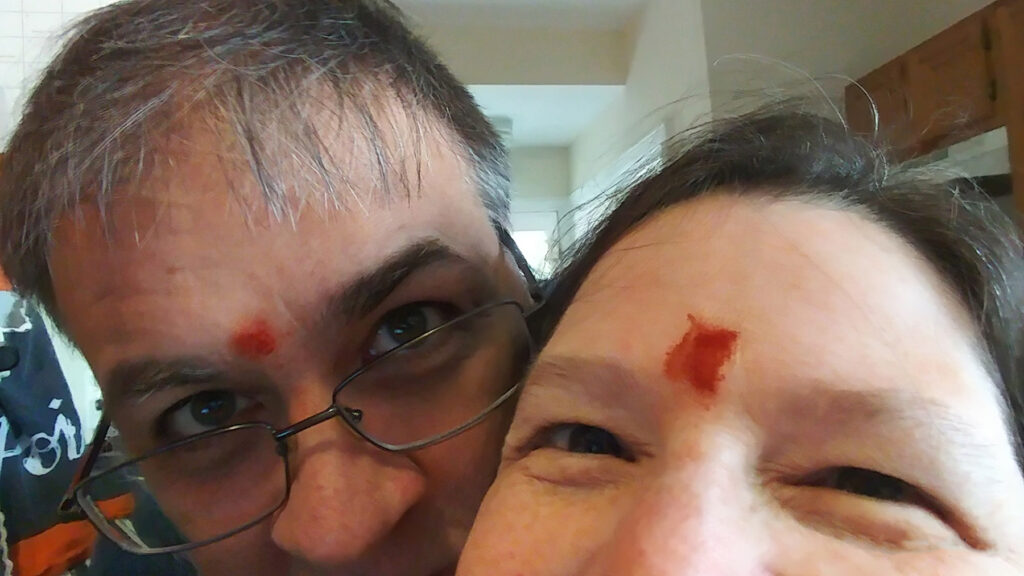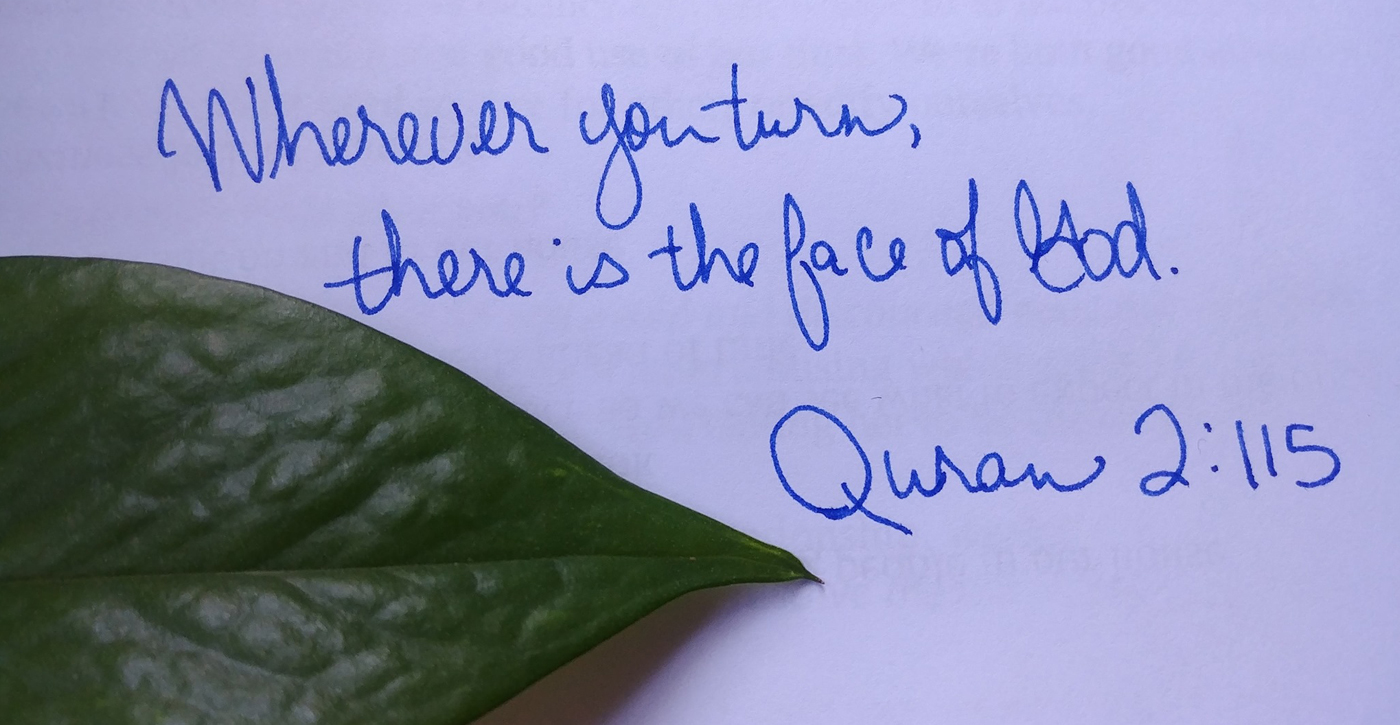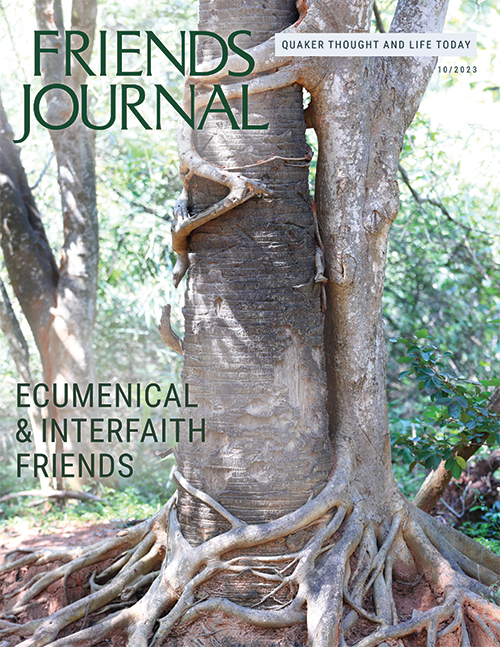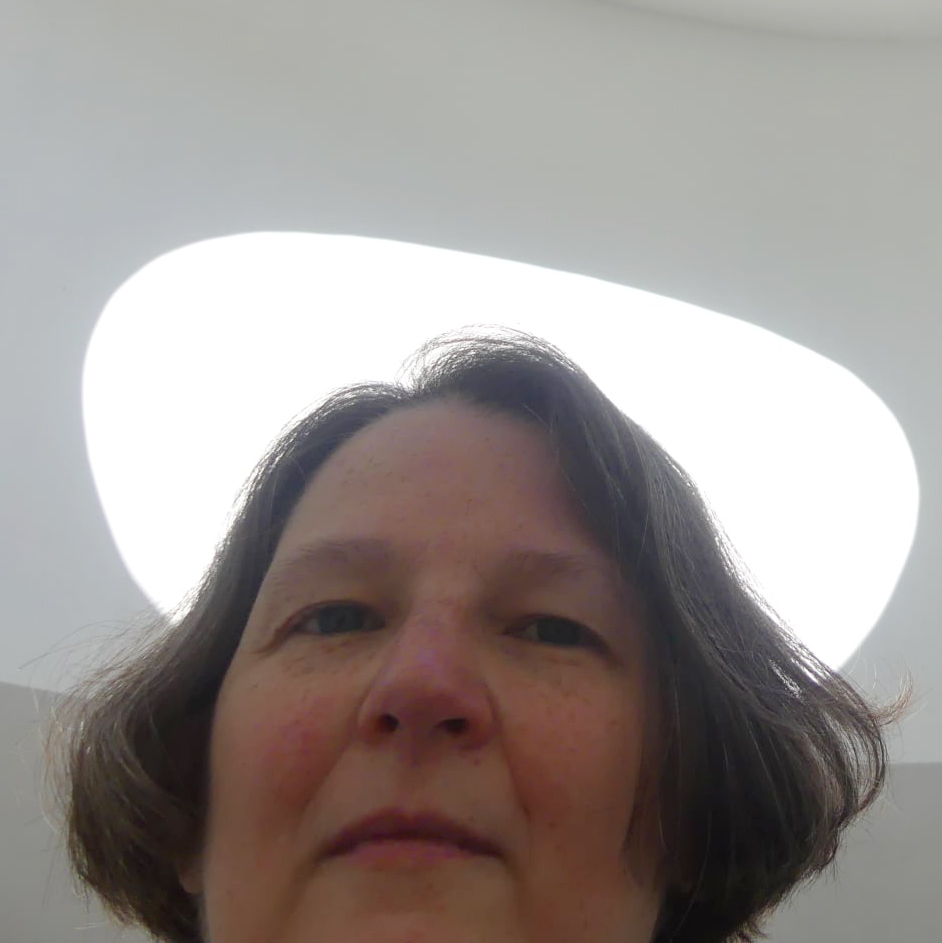Loving the Holy with Our Imperfect Selves
Story 1: Discovery
I was born to parents newly converted. Becoming born-again Christians affirmed for them who they already were and provided a community that nurtured them and welcomed their gifts. Although there are many things I appreciate about my church of origin, I was a miserable failure as a Baptist. I was too open, too curious, too slow in looking up Bible verses (which we called sword drills), and too fast with unfiltered questions. Ultimately, I was too me: unable to present myself as a modest, serious, good Christian girl. I think the main problem, though, was that I believed what they said about God loving us. Because of this, I could not imagine that God would say, “I love you, and if you don’t believe in my love the way this group of people says, I will allow you to be tortured forever.” I knew from experience that love didn’t work that way, and I knew in my heart that God didn’t either.
In my church and at home Our Heavenly Father was prayed to often. My concept of God in my youth was an all-powerful being that was something like a school principal. He wanted everybody to succeed, but it was generally better to fly under His radar because good rarely came of His attention. God was “up there,” aware but distant. Loving, intimate connection with the Divine was not something modeled or taught. I had some powerful mystical experiences during puberty but had no context for them, so I didn’t think about them afterward and, in fact, forgot about them for decades until I encountered language that allowed me to remember.
I stopped churching at 18 and floundered for more than a decade, seeking but finding no evidence for the God I was taught to believe in. I was hoping and looking for some Old Testament God-proving drama and found none. At the same time, it seemed that much of what I read during that period mentioned Quakers. Still casting about, I began to spend my Sunday mornings alone in nature. Eventually, a long trail of oatmeal-cookie crumbs led me to Nashville (Tenn.) Meeting.
I never found a burning bush, but in my second meeting for worship, I was given the clear understanding that the physical intuition I’d had my whole life (the sensation in my solar plexus that I was subtly guided by, completely took for granted, and often didn’t heed) had been God communicating with me the entire time. I had not been taught that God could work that way, so hadn’t had “ears to hear.” Two things are significant about this for me: First, during all the Sunday mornings I spent in nature in the time leading up to attending my first meeting for worship, I did not receive this epiphany; only when I was in worship with others did I get it. And second, once I received the awareness that God had been present with me the whole time, I did not have that felt sense of intuition again. I had to begin anew to learn how to “hear” God. Starting over with the tools of silent worship and a nurturing community to help me listen were foundational for me.
I had to begin anew to learn how to “hear” God. Starting over with the tools of silent worship and a nurturing community to help me listen were foundational for me.
Story 2: Expansion
This story is challenging to write because I don’t yet know how it ends, therefore don’t yet know what it means.
For most of the 2010s, Quakering was a full-time calling for me. I loved doing pastoral care. I loved clerking and serving on committees. I loved acting as a friendly adult nurturer at Quaker teen retreats. I loved supporting folks in the process of finding clearness. I loved organizing and hosting and serving. I loved feeling Spirit use me to care for my communities. I was joyfully busy doing work with, for, and on behalf of Friends when—record scratch—seemingly out of nowhere, I received a clear announcement from God that I was to lay down all my local and regional Quaker responsibilities because I needed to expand my awareness of the Divine. My Holy Advisor said, “You worship in silence and stillness as well as you can at this point in your life. I want you to learn to connect with me in new ways.” I was being sent on a sojourn.
Since that time, I have participated in various forms of worship with a very small Sufi community, a Buddhist/Episcopalian Dharma group, a Kabbalistic Hebrew grammar study group, LGBTQIA+-affirming Baptists, a Disciples of Christ congregation in the Black neighborhood near the Friends meetinghouse, and a large Hindu temple. As a newcomer, I’ve been welcomed, ignored, invited, overlooked, embraced, and approached with openness. At various times, my questions have been answered, handed-off, dropped completely, met with curiosity and then dropped, caused frustration or confusion, and welcomed. I have chanted, prayed, partaken, sung, listened, meditated, slow-motion whirled, learned, pondered, studied, discussed, eaten, and recited. I was healed by the socially and theologically liberal Baptists, expanded by the Hindus, and exhorted by the Disciples. I have discovered new ways to know the Divine in each community and with each activity. I learned things about myself every time I became a newcomer and, as a fairly shy person, often had to give myself over to God in order to be open to new experiences.
What I’ve discovered is connections and similarities. Chanting can take me to the same sense of the Eternal that meeting for worship sometimes does. When I recite “tomaso maa jyotir gamaya,” in the Sanskrit chant called the Pavamana Mantra, I think of George Fox writing about the ocean of darkness and the ocean of light. The study of the Hebrew aleph-bet led me to consider how every moment we have the potential to co-create with Spirit the perfection of gospel order through our thoughts, words, and actions. When I sing praises to the 99 names of Allah or any of the Hindu deities, I ponder if my understanding of God includes or intentionally denies these attributes, and sometimes my relationship with God expands because I have a new point of contact. In Christian worship, I am reminded over and over again that we are called to live as generously and self-sacrificially as Jesus, with awareness that together we are the Body of Christ. And being the Body of Christ leads me to an understanding of advaita/non-duality/unity that is a core belief—expressed in myriad ways—of so many spiritual traditions: Everything is in God, and God is in everything.
Curiously, all of these wonderful, profound, sometimes mystical, and sometimes mundane experiences have made me feel more Quaker than ever before. In spite of the fact that I do believe we need to be in community with Friends to be fully realized Quakers and, for whatever reason, God does not want that for me right now, the way Friends practice our faith feels most true for me. At this point in time, I am a Universalist Friend who really loves Jesus and gets a lot out of the Bhagavad Gita. I’ve no idea what is next nor when nor where this sojourn is to end, but I trust that God is guiding me to where I am supposed to be. I assume that one day I will understand the purpose of my sojourn. Until then, I will continue to trust.

When the Divine gives us a task to do, it is because we are perfect for that thing at that moment. The fact that God wants to use us, including our foibles and imperfections, is what makes us perfect.
Story 3: Aha!
For a year before the pandemic, I attended two Sunday school classes at Sri Ganesha Hindu Temple. The first class was about the basics of Hinduism and was created for adults who were raised Hindu but had grown up outside of Hindu culture because of immigration. The teacher was patient with questions, and it was the perfect class for me as a newcomer. The second class had been meeting for 30 years and was composed of older folks. We would read through a sacred text, examining each passage with slow and methodical attention. That class, informally called “the Gita class,” was a much-less-safe space for questions, as the leaders were all men with ponderous opinions, but it was a place for me to see God through new eyes.
I had been introduced to the sanctum—the main worship room—by the Hindu Basics teacher on my first visit, so I would go there during the hour break between the classes. It is a huge room. It holds at least ten shrines to various avatars of the Godhead or Brahman, recognized individually, as I understand it, as Hindu gods. Some of the shrines are ornate rooms, which devotees enter, while others are smaller and simpler.
The hour I would attend was a busy one. Often there would be—I’m guessing—well over 100 people of all ages in the room, all doing their own forms of worship. There was always a specific pooja, a religious ritual, during that time. It was held in front of the shrine for the big-eyed deity, Jagannath, which is an avatar of Krishna, and it was entirely in Sanskrit, so I don’t really know what was chanted.
All of one’s senses are engaged in Hindu worship. My senses are my most reliable connection to God, and I was made breathless by the stunning colors and textures throughout the room. (The clothing worn by Hindu women at temple is utterly gorgeous; I often feel flamboyant amongst Friends but completely dowdy with Hindus.) Incense burns at different shrines. Flowers adorn altars and statues depicting deities. Lamps burning ghee, clarified butter, are used in ceremonies. During some poojas, the priests offer rosewater or a spoonful of what seemed to my ignorant self like a consecrated trail mix.
I participated in the pooja several times, but doing so did not speak to my condition. I joined various other acts of devotion or rituals but never found a way into meaning. The room has a small area with chairs over to the side for folks who need to sit. After months of trying different practices, I found myself most centered when I sat in that area and held worship.
For me, the most intense sensory engagement in the Hindu temple is the noise. The pooja I mentioned earlier involved chanting, singing, and—at a couple of points—folks playing conch, gong, cymbals, and drum. This isn’t music; it has no rhythm or order to it but is literally a loud and joyful noise. Devotees throughout the large room chant, talk, and comfort crying babies. Bells are hung high with long ropes outside some shrines, and children often run and leap to see if they’re tall enough to ring the bells. People pray as they prostrate themselves. There are a hundred people and hundreds of sounds all at once. Sometimes it felt overwhelming.
One Sunday, I sat to the side in worship, holding all the people, the noise, and what felt to me like good-natured chaos in the Light. Suddenly an old guy, who often sat behind a desk near the entrance as sort of a greeter, jumped out of his chair, grabbed a handheld vacuum, hurried to the middle of the room, and started vacuuming. My immediate response was to feel indignant: In the midst of this cacophony, how in the world could he think it was a good idea to add to the noise by vacuuming! I sat there for a while sort of grumbling and slowly brought him and his handheld vacuum into worship with me where I was given some grace. He wasn’t just cleaning nor was he passive-aggressively criticizing whoever had spilled something in the sanctum. What this man was doing was worshiping using a handheld vacuum as an object of devotion. He was serving the Divine by keeping the sacred space as pristine as he could.
Boy oh boy, did this shift things for me! We’re all doing the best we can. We’re all loving our neighbors, our earth, ourselves, and whatever we believe about the Divine in the best way that we are able in each moment. None of us is perfect; all of us set intentions and sometimes miss the mark. We’re all trying, though. Sometimes our attempts at loving add to the din, but—pah-rum-pum-pum—we’re sharing what we have to offer.
I have the belief that each of us is always two: the person we actually are and the person God created us to be. We are always our human bumbling selves, and we are always becoming our perfect selves. In fact, our perfect selves are the core of our human selves, so there is always the potential for the perfection to break through. When the Divine gives us a task to do, it is because we are perfect for that thing at that moment. The fact that God wants to use us, including our foibles and imperfections, is what makes us perfect. The act of submitting ourselves—submitting our flaws along with our gifts—for Spirit to use lets the perfection shine through.
And that’s what I saw that Sunday in the Hindu sanctuary. I saw a roomful of people all doing what they could to love the Holy with their imperfect, perfect selves. Whatever we call It—God, Brahman, Christ, Goodness, Love, Spirit, Allah, Light—we’re all doing our best to live in It and let It live through us.





God clearly provided us many opportunities to love and be loved in community that best fits our unique person.
Great preparation to be a chaplain by being open to any religion or none.
If only an MDiv took two years like other masters degrees instead of three (full-time) to avoid more debt, even if it goes to a good cause.
A two year masters in social work or counseling could also open doors to directly help people in greatest need.
Why not be an entrepreneur and directly offer help (or organize help) to local and global neighbors with greatest unmet needs?